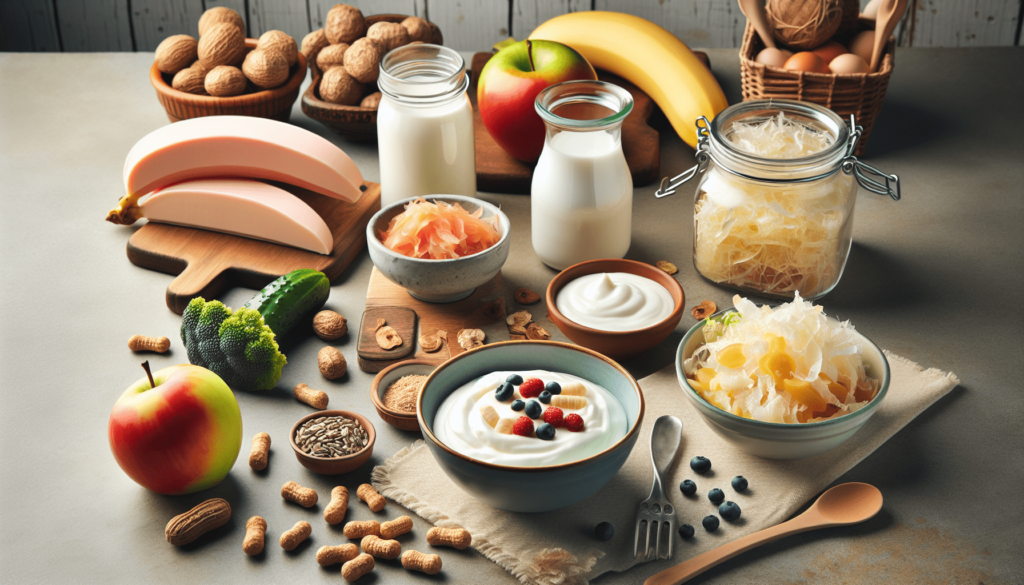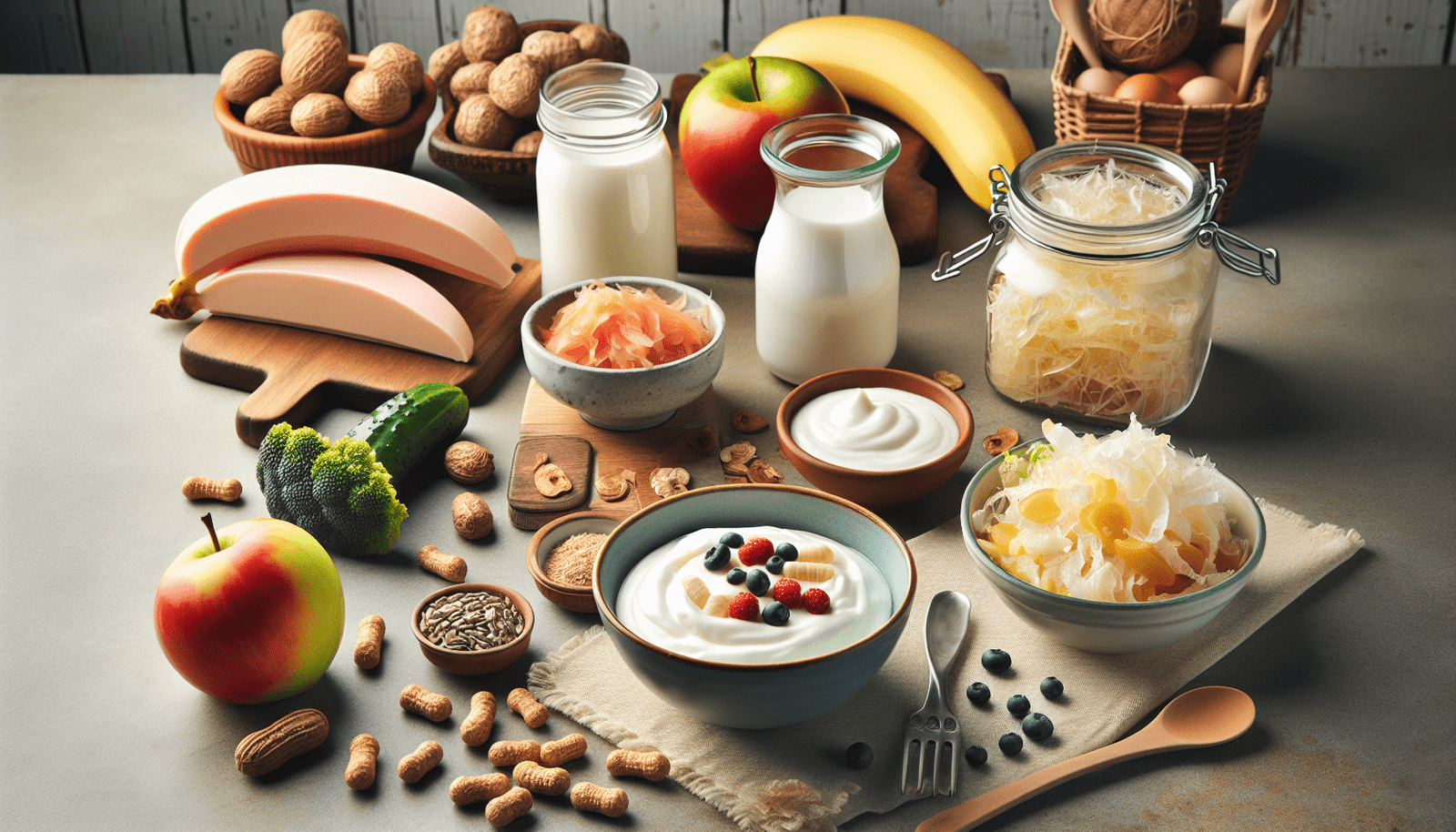Welcome to “The No-Nonsense Guide to Pre- and Probiotics” where you will learn everything you need to know about these essential supplements for gut health. In this article, you will discover the difference between prebiotics and probiotics, how they work together to improve digestion and boost your overall health, and the best sources of pre- and probiotics to incorporate into your daily routine. Say goodbye to confusion and hello to a healthier gut with this straightforward guide. Have you ever wondered what the deal is with pre- and probiotics? Perhaps you’ve heard about them in passing but are unsure of what they actually do for your body. Well, you’re in luck because we’re here to give you the no-nonsense guide to pre- and probiotics. Let’s dive in!

What Are Pre- and Probiotics?
If you’re confused about the difference between pre- and probiotics, don’t worry, it’s a common question. Put simply, prebiotics are non-digestible fibers that act as food for probiotics, which are live beneficial bacteria. In other words, prebiotics are like the fertilizer for probiotics, helping them grow and thrive in your gut.
What are Prebiotics?
Prebiotics are essentially a type of fiber that the human body cannot digest on its own. These fibers pass through the digestive system and serve as food for probiotics, promoting their growth and activity in the gut. Foods rich in prebiotics include garlic, onions, bananas, and whole grains.
What are Probiotics?
Probiotics are live microorganisms that provide health benefits when consumed in adequate amounts. These “good” bacteria can help to balance the digestive system, improve overall gut health, and boost the immune system. Common sources of probiotics include yogurt, kefir, kimchi, and sauerkraut.
The Benefits of Prebiotics
Now that we have a better understanding of what prebiotics are, let’s explore the benefits they provide for our bodies. Prebiotics offer a range of advantages, from improving gut health to enhancing overall well-being.
Improved Digestive Health
By acting as food for probiotics, prebiotics help to promote the growth of beneficial bacteria in the gut. This can lead to improved digestion, reduced inflammation, and better nutrient absorption. Prebiotics also aid in the prevention of constipation and diarrhea.
Enhanced Immune Function
A healthy gut is crucial for a strong immune system, and prebiotics play a key role in maintaining gut health. By supporting the growth of probiotics, prebiotics help to increase the population of good bacteria in the intestines, which in turn boosts immune function and reduces the risk of infections.
Weight Management
Some studies suggest that prebiotics may aid in weight management by promoting the growth of beneficial gut bacteria and reducing the number of harmful bacteria. This can lead to better regulation of appetite, improved metabolism, and ultimately, weight loss.
Blood Sugar Regulation
Prebiotics may also help to regulate blood sugar levels by improving insulin sensitivity and reducing inflammation in the body. By promoting a healthy balance of gut bacteria, prebiotics can play a role in preventing conditions like type 2 diabetes.
The Benefits of Probiotics
Now that we’ve covered the benefits of prebiotics, let’s shift our focus to probiotics and the advantages they offer for our health and well-being. Probiotics are essential for maintaining a healthy gut and supporting overall vitality.
Restored Gut Balance
One of the primary benefits of probiotics is their ability to restore balance to the gut microbiome. By increasing the population of good bacteria in the intestines, probiotics help to combat harmful pathogens, reduce inflammation, and promote overall gut health.
Improved Digestion
Probiotics can help to improve digestion by enhancing the breakdown and absorption of food in the gut. These beneficial bacteria aid in the production of enzymes that assist in the digestion of nutrients, leading to better nutrient absorption and reduced gastrointestinal issues.
Enhanced Mental Health
Believe it or not, there is a strong connection between the gut and the brain, known as the gut-brain axis. Probiotics play a crucial role in this relationship, as they can influence mood, behavior, and cognitive function. By promoting a healthy gut microbiome, probiotics may contribute to improved mental health and reduced symptoms of anxiety and depression.
Boosted Immune System
As mentioned earlier, probiotics are essential for supporting a strong immune system. By balancing the gut microbiome and increasing the population of good bacteria, probiotics help to enhance immune function, reduce inflammation, and protect against infections and illnesses.
Pre- and Probiotic Foods
Now that we understand the importance of pre- and probiotics for our health, let’s take a look at some of the best food sources for these beneficial components. Including pre- and probiotic-rich foods in your diet is a great way to support gut health and overall well-being.
Prebiotic Foods
- Garlic
- Onions
- Bananas
- Asparagus
- Whole grains
Probiotic Foods
- Yogurt
- Kefir
- Kimchi
- Sauerkraut
- Miso

Supplementing with Pre- and Probiotics
While incorporating pre- and probiotic-rich foods into your diet is the best way to maintain a healthy gut, you may also consider supplementing with pre- and probiotics to ensure optimal gut health. Here are some factors to consider when choosing a pre- or probiotic supplement:
Prebiotic Supplements
- Look for supplements that contain a variety of prebiotic fibers, such as inulin, fructooligosaccharides (FOS), and galactooligosaccharides (GOS).
- Start with a low dose and gradually increase to avoid digestive discomfort.
- Consult with a healthcare provider before starting any new supplement regimen.
Probiotic Supplements
- Choose a probiotic supplement that contains a diverse range of bacterial strains, including Lactobacillus and Bifidobacterium.
- Look for supplements that are stable at room temperature and have an expiration date to ensure potency.
- Consider the specific health benefits you are looking to achieve, such as improved digestion or enhanced immunity, when selecting a probiotic strain.
The Bottom Line
In conclusion, pre- and probiotics play a crucial role in maintaining a healthy gut and supporting overall well-being. By incorporating pre- and probiotic-rich foods into your diet and considering supplementation when necessary, you can promote good gut health, boost your immune system, and enhance your mental and physical health. Remember, a happy gut is a happy you!

